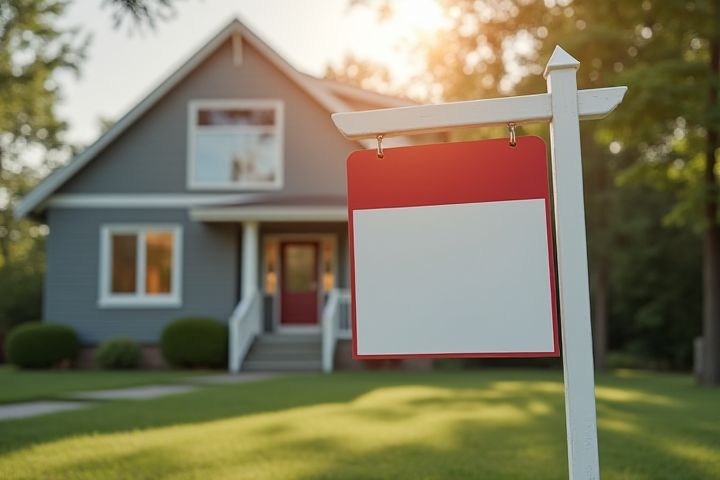
When buying a house, it's essential to avoid hasty decisions driven by emotions; instead, base your choices on thorough market research and property evaluations. Steer clear of neglecting the importance of a home inspection, as this can lead to unanticipated repair costs in the future. Avoid overly ambitious financial commitments that could strain your budget; aim for affordability and account for ongoing expenses like maintenance and property taxes. Be cautious of properties located in declining neighborhoods, as this can affect both your quality of life and long-term investment returns. Lastly, resist the temptation to skip professional guidance; engaging a qualified real estate agent can provide crucial insights and negotiation advantages in your home-buying journey.
What To Avoid When Buying A House
Skipping home inspections
Skipping home inspections can lead to significant financial losses and unforeseen expenses. A thorough inspection typically costs between $300 and $500, but this investment can uncover critical issues like structural damage or plumbing problems, potentially saving you thousands in repairs. Without this crucial step, you risk purchasing a property with hidden defects that may require immediate attention or costly renovations down the line. Always prioritize a comprehensive home inspection to ensure your investment is sound and to avoid unpleasant surprises after closing.
Ignoring additional costs
When buying a house, it's crucial to avoid overlooking additional costs that extend beyond the purchase price. Property taxes, homeowners insurance, and mortgage insurance can significantly impact your monthly budget, so it's essential to factor these into your overall financial plan. You should also consider home maintenance, potential renovations, and utility expenses, which can arise unexpectedly. Failing to account for these extra expenses can lead to financial strain, making it challenging to enjoy your new home fully.
Overextending budget
When purchasing a house, it's crucial to avoid overextending your budget, as this can lead to financial strain and long-term stress. Experts recommend keeping your monthly mortgage payments below 28% of your gross monthly income, ensuring you have adequate funds for other expenses. Additionally, consider the total cost of homeownership, which includes property taxes, insurance, and maintenance, potentially adding up to 2% to 4% of your home's value annually. By adhering to a strict budget and avoiding emotional decisions, you can ensure a more sustainable and enjoyable homebuying experience.
Disregarding resale value
Disregarding resale value can be a costly mistake when buying a house. Properties in neighborhoods with declining values or high crime rates typically see significant drops in worth, making it difficult to recover your investment. Focusing solely on personal preferences, such as aesthetic features or layout, may lead you to overlook critical market trends, which could affect your home's future worth. Assessing potential resale value involves researching comparable homes, local school ratings, and community developments that may influence market demand over time.
Neglecting neighborhood research
Neglecting neighborhood research can lead to significant regrets when purchasing a home. Understanding local amenities, schools, crime rates, and future development plans can greatly impact your quality of life and property value. You risk investing in a home surrounded by undesirable factors, such as high traffic or limited access to essential services. A thorough evaluation of the neighborhood not only ensures a satisfactory living environment but also protects your long-term investment in the real estate market.
Rushing decisions
Rushing decisions when buying a house can lead to significant financial and emotional consequences. It's crucial to take the time to thoroughly research the property market, ensuring you understand the neighborhood trends and comparable home values. You should also consider the long-term implications of your purchase, like potential resale value and your future needs. Skipping essential steps, such as home inspections and mortgage pre-approval, can result in costly regrets later on.
Ignoring future development plans
Ignoring future development plans can lead to significant issues after purchasing your home. Local government sites often publish information on proposed developments, which may include new roads, public transport, schools, or commercial projects that can affect your quality of life and property values. For instance, a residential area might transform into a bustling business district, increasing noise and traffic congestion. Thorough research on these plans, including zoning changes and community proposals, can prevent unforeseen disruptions to your living environment and investment.
Foregoing professional advice
Foregoing professional advice can lead to costly mistakes when purchasing a house, as real estate agents and inspectors possess crucial knowledge about market trends and property conditions. Skipping a home inspection, for instance, can result in discovering costly repairs down the line, which can average between $5,000 and $20,000 for major issues. Relying solely on online resources may mislead you about fair market value; working with someone experienced helps you avoid overpaying by as much as 10%. Engaging legal counsel for contract review can also save you from potential pitfalls, as they can identify unfavorable terms that could affect your investment.
Overlooking property history
Overlooking a property's history can lead to significant issues during your home-buying process. Ensure you research past ownership, as multiple owners may signal unresolved problems or poor maintenance. Investigate any previous liens or legal disputes associated with the property, as these can impact your ownership rights. Finally, pay close attention to past renovations; unpermitted work may not comply with current building codes, leading to unexpected costs or complications down the line.
Failing to negotiate
When buying a house, failing to negotiate can significantly impact your financial investment. Many buyers overlook this essential step, potentially leaving thousands of dollars on the table; average savings from effective negotiation can range from 5% to 15% of the home's price. You should research property values and market trends in your desired neighborhood to strengthen your negotiation position. Remember, sellers often expect some level of negotiation, so not attempting to negotiate could lead you to miss out on better terms or additional benefits.
